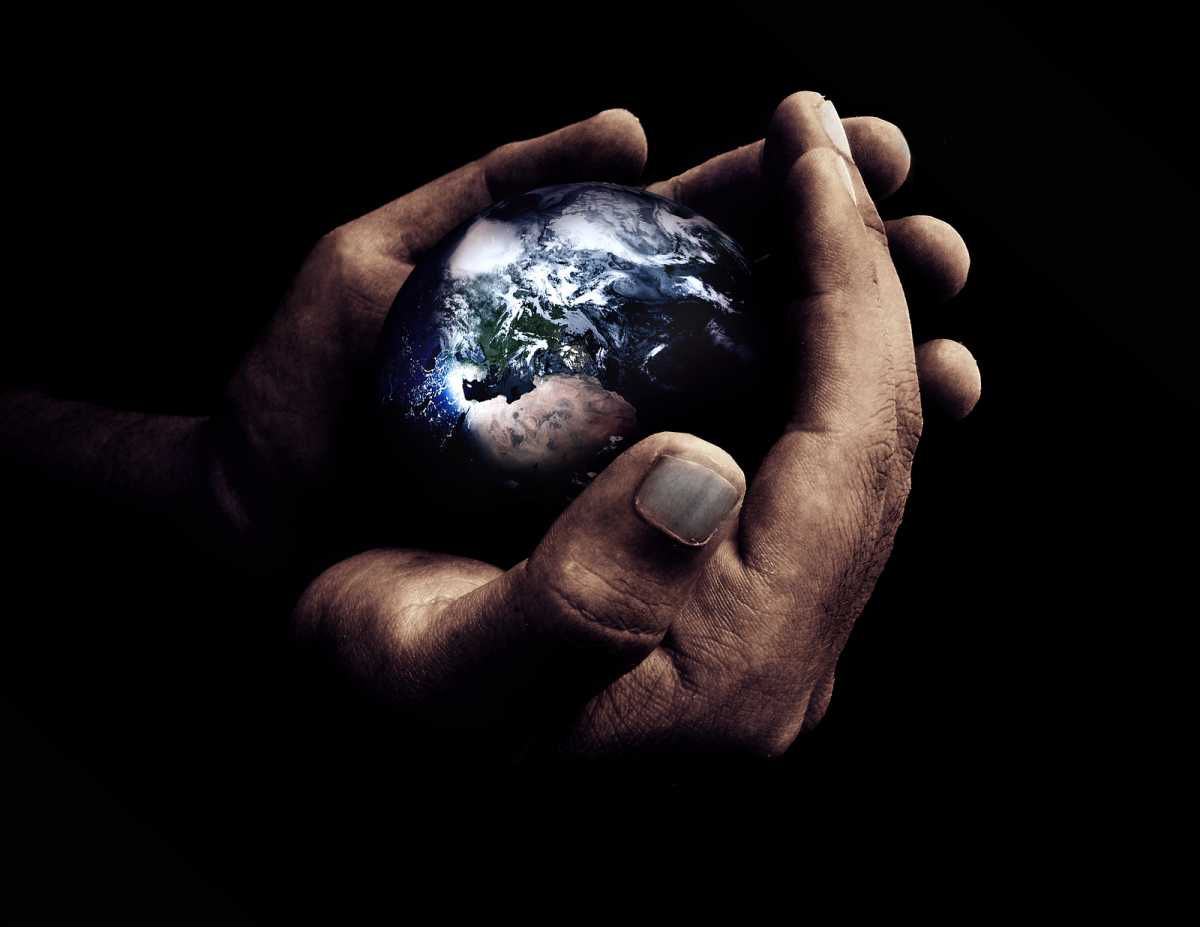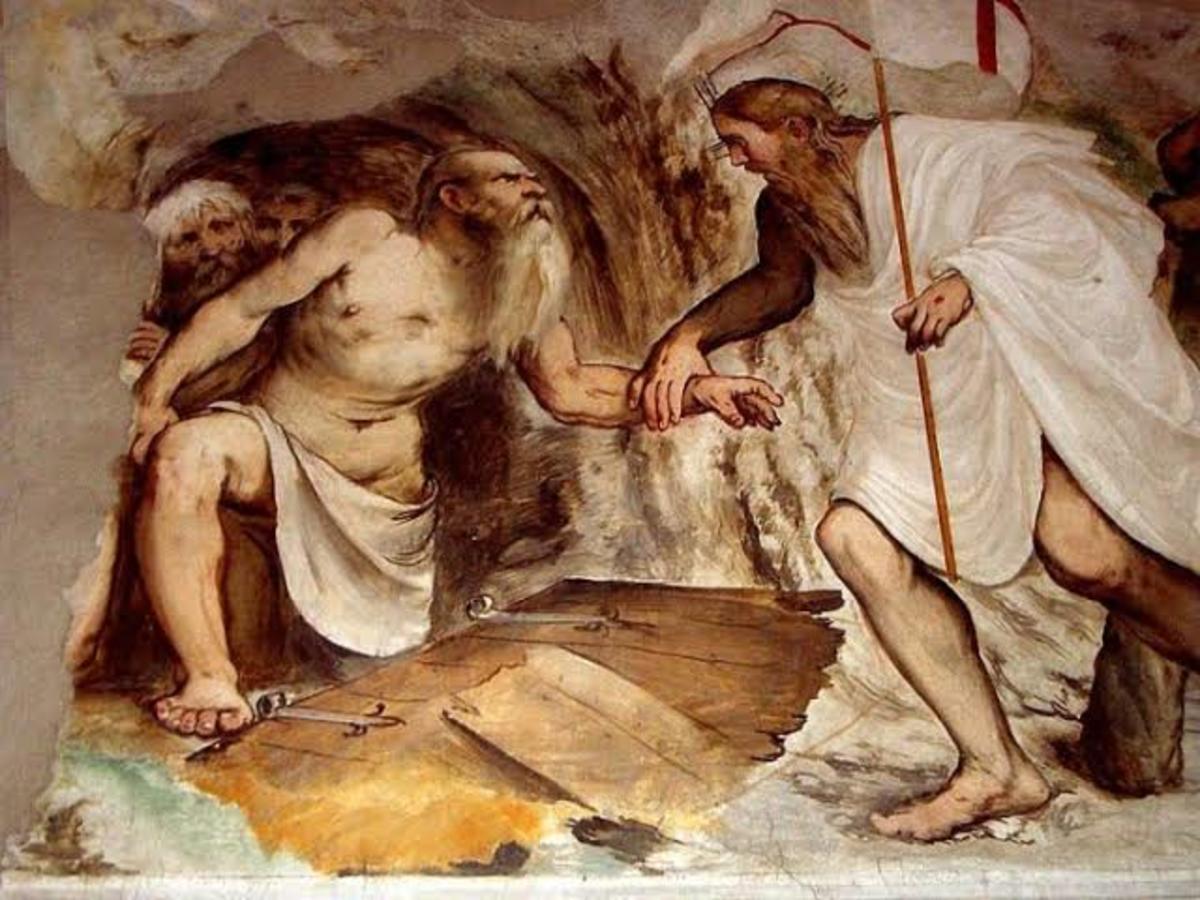There Actually Is A God
'Because there actually, really is a God who created all that exists, and He is the God of Abraham, the God of the Bible', answers the question; "Why do humans need love?"

Is There Really A God?
Many people think that religion, that the very idea of there being a god at all, is nothing more than man (initially primitive man) scratching around his fearfully ill-informed mind to answer questions of 'self' and purpose and notions of right & wrong, etc. And many individual people do reach-out to some organized religions to feel hope and comfort, to gain a sense of purpose and rest in the idea that, behind all the turmoil we are confronted with in this life, there is ultimately a benevolent authority who knows what he's doing.
And so, because so many do embrace whatever religion is prominent in the culture they happen to be born into, or reject what appears dull and 'normal' (or even evil) to them and flock to foreign, exotic (more 'spiritual'), religions, etc, those who think that any idea of an invisible god behind what we can observe and handle in our material reality is a foolish wish of fearful, emotionally weak, intellectually stunted people, are more convinced than ever that religion is a notion made-up by primitive man to explain lightening, failed crops, and his own existence.
But there are questions, besides 'what are the lights in the sky?' or 'why do my crops fail?', etc, that very reasonably lead us to the idea of God, to the idea that behind the material reality we find ourselves in there is an invisible reality, a spiritual rather than material reality and an infinite, eternal authority who created all that exists. The real question isn't 'what are the lights in the sky?' but what and how and why is there anything at all? Either material reality, the universe, our world, etc, has always existed or it began to exist at some point in time. All evidence of our world (decay, properties of energy, the nature of time, etc) demonstrate to us that our world, and no matter at all, has always existed - so, there was a time, an event, in which matter came into being.
Whatever scenario we construe, whatever names we employ ('big bang', etc), we are talking about an absurdity. At one point, there is nothing for endless eons of time . . . nothing, nothing, nothing, still nothing, nothing, and then 'POP', suddenly there is a tiny amino acid molecule or a hydrogen atom or whatever. How? Why? How and why would some particle of material just 'pop' into existence out of eons of nothingness? What would transpire in a void of nothingness to create some tiny piece of stuff and how would empty nothingness go about creating tiny pieces of stuff? Religionists are mocked and sneered at for believing in some invisible man in the sky who made everything - how is blank space, empty nothingness 'popping' out molecules any more reasonable that a spirit being unlike the material reality we exist in creating for a purpose?

Secular Ethic or Eternal Morality?
Another question, besides 'what are the lights in the sky?' or 'why do my crops fail?', etc, is why do I own a sense of right and wrong, good and bad? The secularist will say that civilization, that men living in community, required man to establish rules, that ideas of right and wrong are nothing more than social contracts that we concoct to provide for ourselves a relatively safe environment to live in. That may well be part of the explanation of the fashioning of specific rules, of ordinances regarding theft, marriage, false advertising, etc - but it doesn't at all address the concept, the fundamental notion of right and wrong, good and bad.
If there is no God, no spiritual reality behind or beside (whatever) our own material world, if we are nothing more than a collection of animated molecules that 'popped' into existence for no reason or purpose, if we live in a world of random circumstances without order or design, etc, then, where do any initial concepts of 'good' and 'bad' even come from? We might think in terms of reasonable expectation for success, or sheer functionality, etc, but why would we think in terms of our actions being 'good' or 'bad', as in righteous or evil?
Think of a lion; when a lion comes upon a gazelle he doesn't think to himself 'Well, this isn't really fair, it would be wrong for me to attack so defenseless a creature' - rather, the lion thinks (in some instinctive manner) 'Great! No fangs, no claws . . . if I can sneak-up on it this should be relatively easy, I'm having gazelle tonight for dinner'. The Christian God says (in the Bible) that He made all the beasts of the field, but that He created man like Himself and breathed into man the breath (spirit) of life and man became a living soul . . . eliminating God from the scene, why would man have ideas of things being either right or wrong, good or bad? Carrots don't do things because it's the right thing to do, chickens don't follow a moral code, and lions don't struggle with internal questions of ethical conduct, etc. If there is no external, objective, eternal truth concerning right and wrong, then where would such notions of 'good' and 'bad' come from in a purely material, spontaneous, random and without design or purpose, world?

So, Why Does Man Need Love?
So, what does the reality that there actually is a God have to do with the question "Why do humans need love?"? The answer is found in knowing who God is. This is not a discoverable knowledge, who God is isn't something we can sit down and figure-out - and this is why God reveals himself to man. The Bible tells us that God, the one true God, is the God of Abraham, Jesus of Nazareth, the eternal Spirit. The God of the Bible reveals Himself to be unlike man who He created in this sense; each man is an individual soul, a specific person unto himself - God is one being made of three persons . . . I am me - God is Father, Son, Holy Spirit. I am one and so is God one, but my one consists only of one person (me) while God's one consists of three persons (Father, Son, Spirit). We can't grasp this of course, because our experience is exclusive to the material world while God exists in eternity and is not bound by the natural physical laws that He created.
This is why the Bible says that "God is love" . . . not that God created love or that God promotes love, etc, but that God IS love. God is, before all creation and within Himself, a relationship, love is the thing that binds the three persons of God together as one. And, God made us . . . that is why we need love. God made us like Himself in many ways and He made us to ultimately be untied to Him. Prior to any manner of government, church, society, etc, God established the institution of marriage . . . He made man male and female and announced they should come together and that when they do, He declares that He counts them as one flesh. When we come to Him, not through religion but through Jesus, God adopts us as His own and puts His own Spirit within us and we become one with Him . . . and so God has fashioned this world and man with the purpose of uniting all things in Himself.
We are born the isolated individuals that we are, but God has ordained that we join together with one another and with Him . . . God is a relational being, He is Father, Son, and Spirit and He calls us to, while remaining the individuals we are, to join together with each other and ultimately with Him. We don't lose our person-hood, we maintain our individual 'us' just as God is one and yet he is Father, Son, and Spirit . . . we are not absorbed into but are united unto one another and God. Why does man need love, because, as the Bible says, "love is the perfect bond of unity". Man needs love because God IS love and it is through love that He unites us to each other and to Himself.









